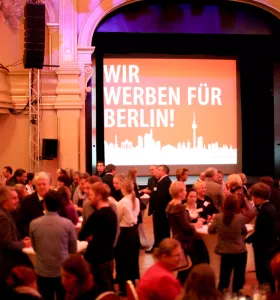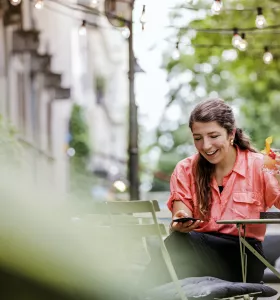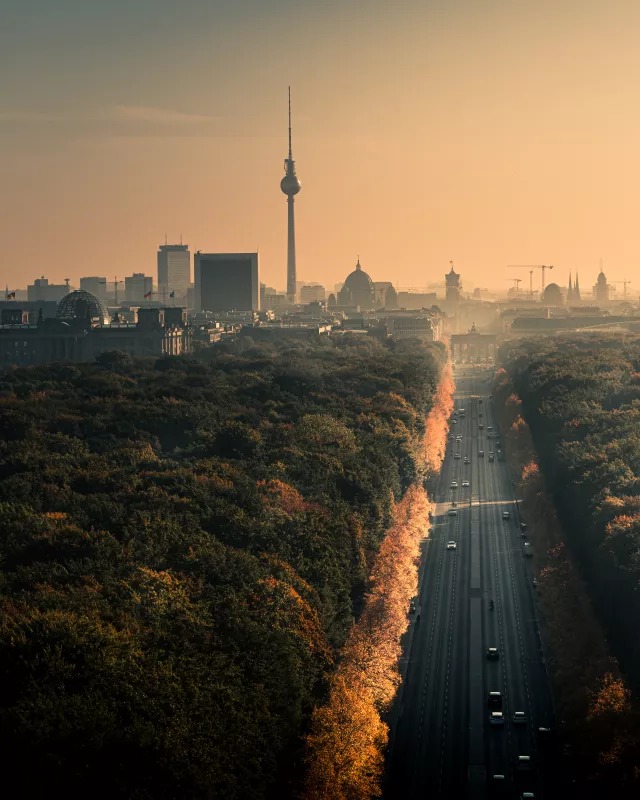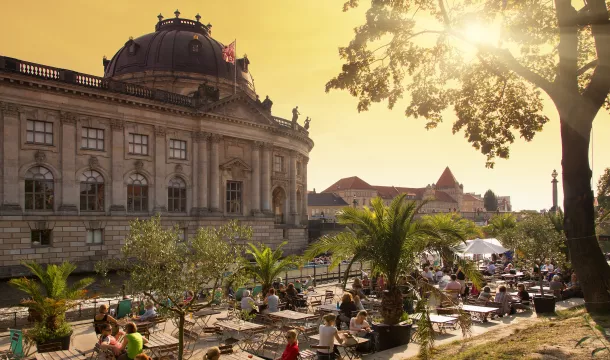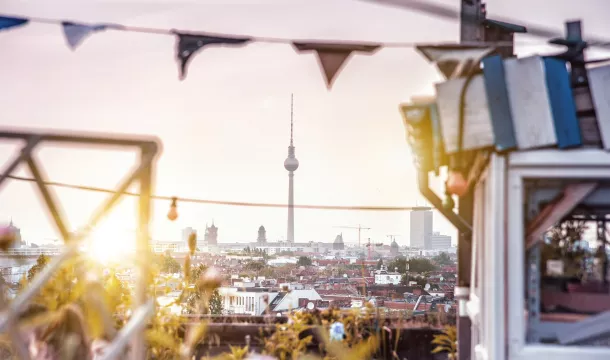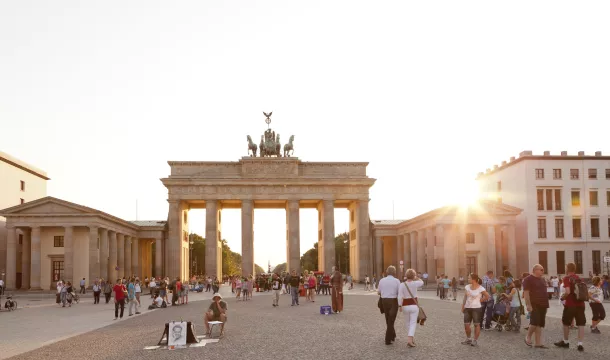Overview of tourism in Berlin 2021
- 5.13 million visitors and 13.96 million overnight stays, 59 per cent decrease in overnight stays compared to 2019
- Strong summer season, October best month for Berlin tourism in 2021
- War in Ukraine lowers expectations for quick recovery of tourism
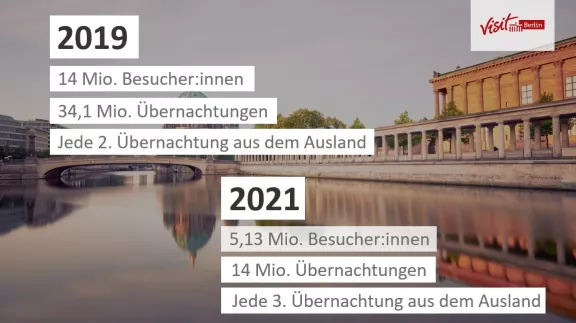
Berlin, 1 March 2022 Tourism in Berlin has slightly recovered in the second year of the coronavirus pandemic. This is shown by figures released today by the Landesamt für Statistik Berlin-Brandenburg, according to which around 5.13 million visitors travelled to Berlin in 2021, resulting in 13.96 million overnight stays in Berlin hotels. Compared to 2020, this is a 3.7 per cent increase in guest numbers, and overnight stays rose by 13.7 per cent. Overall, tourism in Berlin has reached 37 per cent of its pre-pandemic level for arrivals, and about 41 per cent of overnight stays. Germans in particular remained loyal to their capital city in the past year, with 71 per cent of overnight stays attributed to domestic visitors and 29 per cent attributed to international guests. The most important European origin countries were neighbour states like the Netherlands, Denmark and Poland. The strongest overseas market was the USA: Overnight stays at hotels by American guests increased relative to 2020. However, the war in Ukraine is hampering expectations for quick recovery.
Stephan Schwarz, Senator for Economics, Energy and Public Enterprises: "Tourism, conferences and trade fairs are among our city's core industries. These provide a living for many Berlin residents, and are the business card for the city. With our Neustart Wirtschaft program, we want to provide support for industries that have been hit particularly hard by the coronavirus pandemic over the past two years. These include not only tourism and the events industry, but also food service, local retail and creative industries."
"Thanks to the comeback that started on 11 June, tourism in Berlin has performed better in the past year than it did in 2020. We have kicked off the restart with our intensive marketing activities," says Burkhard Kieker, CEO visitBerlin. "We are already seeing a sharp increase in demand for the summer. People have a strong need to travel and experience things. Yet the war in Ukraine will have effects on tourism that we cannot yet clearly predict."
Berlin tourism: Strong comeback in summer – fewer guests in winter
After a long lockdown, overnight hotel stays by tourists in Berlin were only possible as of 11 June 2021. The city’s tourism then quickly picked up speed: Overnight stays in August were already at 69 per cent of the pre-pandemic level, and this number rose to about 80 per cent in October. Rising infection rates as of November impaired this positive growth, and the important Christmas and New Year business was poor.
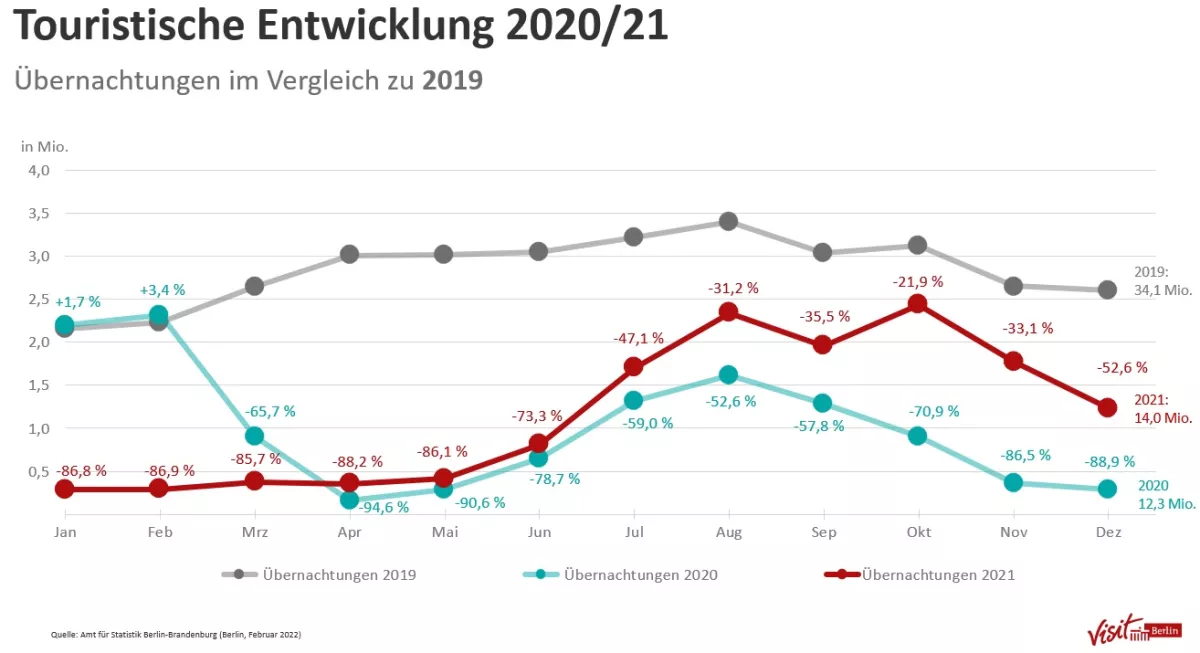
Tourist attractions severely affected by pandemic
The coronavirus pandemic hit the city's tourism industry particularly hard in 2021. According to the market research tool "Visitor Insight", which includes data from the Interessenverband der touristischen Attraktionen Berlins (Intoura), sightseeing providers performed best in the second year of the coronavirus with an average visitor level of 37.4 per cent, and attractions with 36.2 per cent, compared to 2019. In 2021, they performed better than stages, which only achieved 30.2 per cent of their 2019 level, as well as museums which, with just 28.3 per cent, suffered the most from fewer visitors.
Restart activities: visitBerlin promoted reboot of visitor economy
Together with the Senate Department for Economics, Energy, and Public Enterprises, visitBerlin supported the reboot of Berlin's tourism and conference industries with more than 150 promotions in the past year. "Berlin bewegt" encouraged visits to Berlin over the summer, and visitBerlin touted retail in the city for a Christmas campaign in November and December. Then there were travel offers such as the popular hotel promotion "Erlebe Deine Stadt!" and digital tools like the "TourismusHub" e-learning platform. Further promotions are planned for the coming months, such as a Germany-wide image campaign, while another campaign on tourism as an economic factor will be geared toward Berlin residents and the city's visitor economy.

